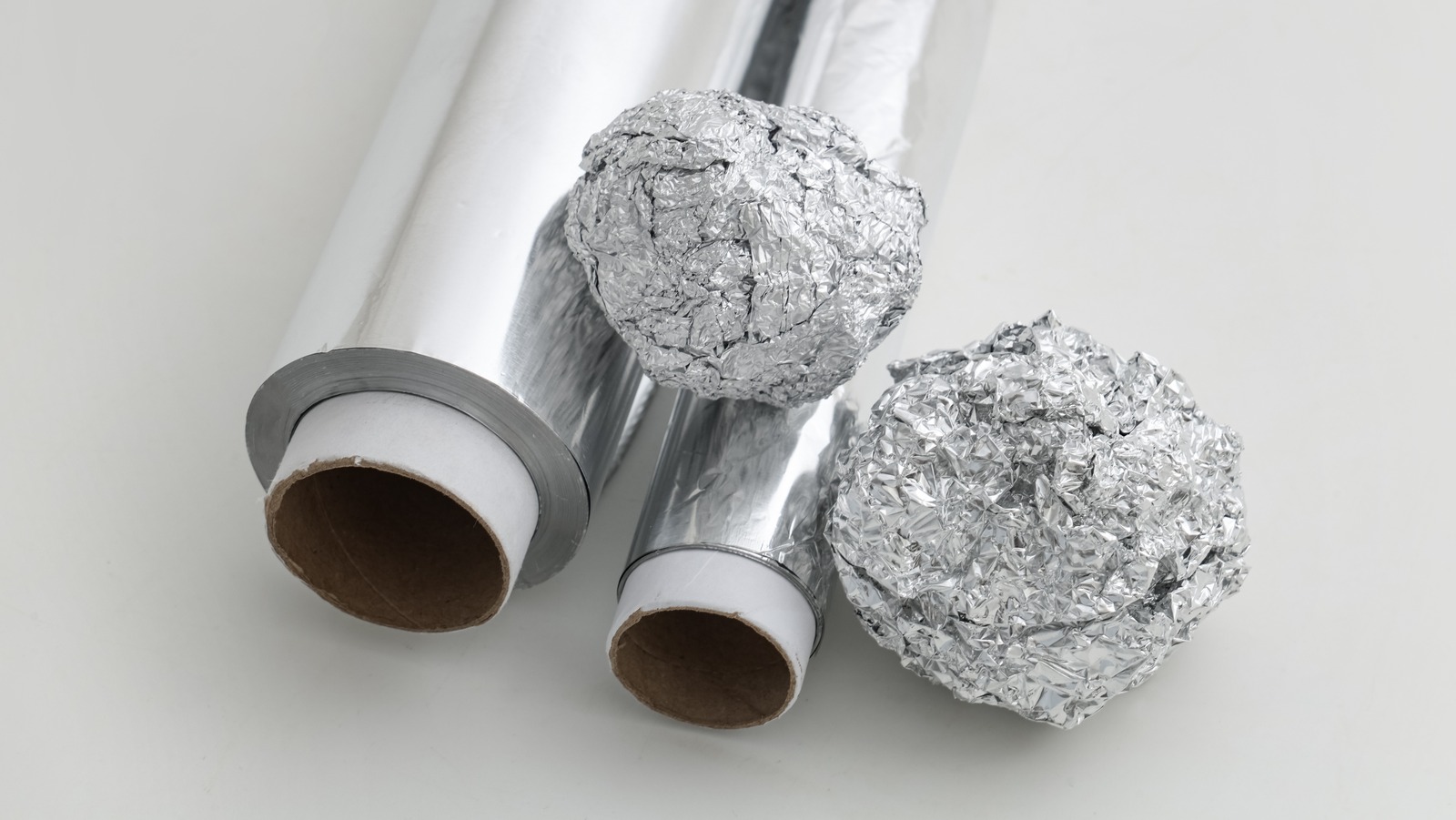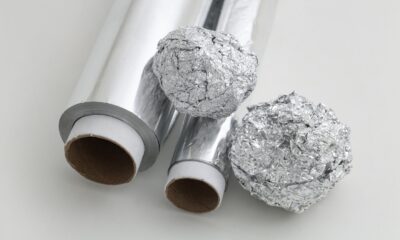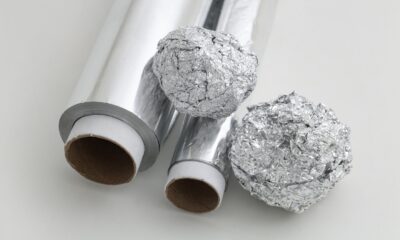Science
Can Aluminum Foil Effectively Block RFID Signals? Experts Weigh In

In recent years, the use of aluminum foil as a means to block RFID (Radio Frequency Identification) signals has gained traction among consumers looking to protect their personal information. This trend, rooted in a mix of popular culture and scientific principles, raises questions about the actual effectiveness of aluminum foil in safeguarding against RFID skimming.
Exploring the Origins and Mythology
The concept of using aluminum foil for protection against invisible forces dates back to Julian Huxley’s 1927 short story, “The Tissue-Culture King.” In this tale, a scientist dons a “cap of metal foil” to shield himself from a tribal leader’s telepathic control. While fictional, this narrative has contributed to a belief that aluminum foil can block various types of signals, including those emitted by RFID technology. Today, some individuals wrap their car keys in foil to deter thieves from accessing key fob signals wirelessly.
Despite these popular practices, the scientific understanding of aluminum foil’s effectiveness in blocking RFID signals is nuanced. Under specific conditions, aluminum foil can serve as a shield, reflecting or absorbing the radio waves used by RFID systems. However, the extent of this shielding effect is influenced by a variety of factors, including the material’s thickness and the wrapping method employed.
Scientific Insights and Limitations
Research on aluminum foil’s capability to block RFID signals is limited, but the principles behind Faraday cages offer valuable insights. According to a report by the Department of Homeland Security, a Faraday cage is a “metal mesh or foil container that is impenetrable by radio signals of certain frequencies.” This principle illustrates how metals can be used to shield RFID tags effectively.
A key study conducted by the University of Arkansas’ RFID Research Center examined the effectiveness of RFID technology in retail environments. The research revealed that even items placed inside aluminum-lined bags could still be detected by RFID systems approximately 77% of the time. This suggests that while aluminum can attenuate signals, it may not provide a foolproof solution against unauthorized scanning.
According to RFID Card, a provider of RFID and NFC solutions, several factors impact the ability of aluminum foil to block RFID signals. These include environmental conditions, the thickness of the foil, and how tightly the foil is wrapped around the item.
In conclusion, while aluminum foil may offer some degree of protection against RFID skimming, it is not wholly reliable. For individuals seeking effective solutions to safeguard their credit card information and other personal data, investing in an RFID-blocking wallet is likely a more practical choice than relying on aluminum foil. The ongoing interest in this topic highlights the importance of understanding the technology behind RFID systems and the methods available for protecting sensitive information.
-

 Entertainment1 month ago
Entertainment1 month agoAnn Ming Reflects on ITV’s ‘I Fought the Law’ Drama
-

 Entertainment2 months ago
Entertainment2 months agoKate Garraway Sells £2 Million Home Amid Financial Struggles
-

 Health1 month ago
Health1 month agoKatie Price Faces New Health Concerns After Cancer Symptoms Resurface
-

 Entertainment1 month ago
Entertainment1 month agoWhere is Tinder Swindler Simon Leviev? Latest Updates Revealed
-

 Entertainment2 months ago
Entertainment2 months agoKim Cattrall Posts Cryptic Message After HBO’s Sequel Cancellation
-

 Entertainment1 month ago
Entertainment1 month agoCoronation Street’s Carl Webster Faces Trouble with New Affairs
-

 Entertainment2 months ago
Entertainment2 months agoMasterChef Faces Turmoil as Tom Kerridge Withdraws from Hosting Role
-

 Entertainment3 months ago
Entertainment3 months agoSpeculation Surrounds Home and Away as Cast Departures Mount
-

 World1 month ago
World1 month agoCole Palmer’s Mysterious Message to Kobbie Mainoo Sparks Speculation
-

 Entertainment1 month ago
Entertainment1 month agoITV’s I Fought the Law: Unraveling the True Story Behind the Drama
-

 Entertainment4 weeks ago
Entertainment4 weeks agoCaz Crowned Winner of The Great British Sewing Bee, Overjoyed by Triumph
-

 Entertainment2 months ago
Entertainment2 months agoAldi Launches Cozy Autumn Fragrance Range Ahead of Halloween














